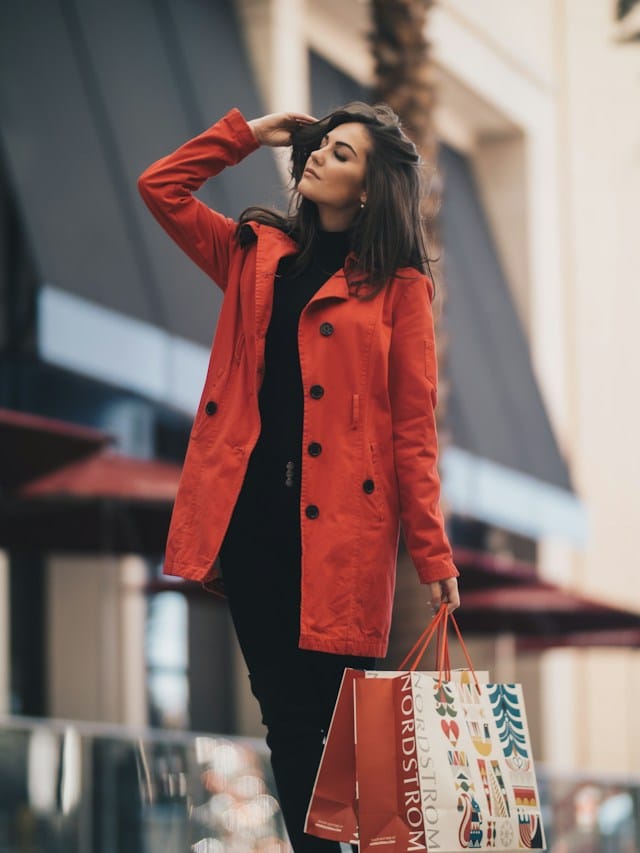As we find ourselves in the year 2024, the way we consume fashion has changed dramatically. The throwaway culture of fast fashion has been replaced with a more conscious consumer approach. Sustainable fashion and ethical shopping have become the new norm. In this deep-dive, we will explore the latest trends that have reshaped the fashion industry and the shopping habits of the eco-conscious shopper.
The Rise of Conscious Consumerism
We are living in a time when conscious consumerism is no longer a niche, but a mainstream trend. What exactly does it mean though? It is a movement that encourages consumers to be more aware of the environmental and ethical implications of their purchases. It’s about making choices that are sustainable, ethical and responsible.
Dans le meme genre : Online anonymity: best practices for using a VPN effectively
A key trend in this space is the focus on quality over quantity. Consumers are now prioritizing investment pieces that are designed to last, rather than disposable fast-fashion items. They are willing to pay a premium for products that are high-quality, ethically made, and environmentally friendly.
Another significant trend is transparency. Today’s consumers demand complete transparency from brands about their production processes, supply chains, and sustainability efforts. Brands that are transparent about their business practices are gaining a competitive edge in the market.
A découvrir également : How to Plan Budget-Friendly Travel Adventures and Explore New Destinations?
The Popularity of Sustainable Materials
As the sustainable fashion movement gains momentum, the popularity of sustainable materials has skyrocketed. These materials have a significantly lower environmental impact compared to traditional ones, and they are becoming increasingly sought after by consumers.
There’s a growing interest in organic cotton, which is grown without harmful pesticides or synthetic fertilizers. As compared to traditional cotton, it uses less water and is healthier for farmers and the soil.
Recycled materials have also become a major trend. Many brands are now creating clothing from recycled plastic bottles, fishing nets, and even old garments. This not only reduces the amount of waste going to landfill but also lowers the demand for virgin materials.
On the more innovative side, we now have biofabricated materials. These are materials grown in a lab using cellular agriculture, like leather made from mushroom mycelium or silk produced by yeast. These materials have the potential to revolutionize the fashion industry by offering a cruelty-free and sustainable alternative to traditional materials.
The Emergence of Resale and Rental Platforms
The traditional model of buying new clothes and discarding them after a few wears is rapidly becoming outdated. In its place, we are seeing the rise of resale and rental platforms – a trend driven by the desire to combat clothing waste and extend the life of garments.
Resale platforms such as Depop and ThredUP have exploded in popularity. They provide a platform for consumers to buy and sell pre-loved garments, promoting a circular economy. For many younger consumers, shopping second-hand has become a way of life, a trend that is being buoyed by the rise in vintage fashion.
Rental platforms, on the other hand, allow consumers to rent clothes for a specific period. This model is particularly appealing for items that are only worn once or twice, such as occasion wear. Rent the Runway and Tulerie are leading players in this space, offering a vast selection of designer pieces for rent.
The Importance of Fair Trade and Ethical Labor Practices
The sustainable fashion movement is not just about environmental sustainability, but also social sustainability. This includes fair trade practices and ethical labor conditions.
Fair trade is a system of commerce that seeks to create greater equity in international trade by promoting sustainable development and providing better trading conditions for marginalized producers and workers. Fair Trade Certified fashion items ensure that producers in developing countries receive a fair wage and work in safe conditions.
Ethical labor practices are also critical. Brands are increasingly being scrutinized for their treatment of workers in their supply chains, leading to a greater emphasis on ensuring safe working conditions, fair wages, and no child or forced labor. Brands like Patagonia and Everlane have set the standard in this space, going above and beyond to ensure their supply chains are ethical and transparent.
Embracing Slow Fashion and Minimalism
Finally, we are seeing a shift towards slow fashion and minimalism. Slow fashion is about producing and consuming fashion at a slower, more sustainable pace. It encourages consumers to buy less, choose well, and make it last.
Slow fashion brands focus on timeless designs, durable materials, and quality craftsmanship. They produce fewer collections per year and aim to reduce waste in all areas of their operations.
Minimalism, on the other hand, is about embracing simplicity and reducing excess. It’s about curating a wardrobe of essential, versatile pieces rather than chasing the latest trends. Capsule wardrobes are a popular manifestation of this trend.
In conclusion, sustainable fashion and ethical shopping have become more than just buzzwords. They are powerful trends shaping the future of the fashion industry. As consumers, our choices can make a significant impact. By embracing these trends, we can be part of the solution to fashion’s sustainability problem.
The Adoption of Sustainable and Ethical Brands
As we become more aware of the impact our shopping habits have on the environment and the people involved in the production process, more and more consumers are turning to brands that prioritize sustainable and ethical practices. Sustainable brands are those that consider the environmental footprint of their products throughout their entire lifecycle. This includes sourcing sustainable materials, minimizing waste during production, reducing energy consumption, and encouraging recycling or reuse at the end of the product’s life.
Similarly, ethical brands focus on the human side of the equation. They ensure fair wages, safe and healthy working conditions, and respect for workers’ rights in all stages of production. They also prioritize transparency and are upfront about their sourcing and manufacturing practices.
A growing number of brands are merging these two concepts, aiming to be both sustainable and ethical. Brands like Eileen Fisher, Reformation, and Patagonia are leading the way in this regard, proving that it is possible to create stylish, high-quality fashion that is both kind to the environment and the people who make it. They are setting a new standard for the fashion industry, one that consumers are increasingly demanding.
The Influence of Sustainability Education and Fashion Activism
Education plays a crucial role in the rising trend of sustainable fashion and ethical shopping. Consumers are becoming more educated about the environmental impact of fast fashion, the exploitation of garment workers, and the importance of sustainable materials and production processes. Numerous documentaries, news articles, and social media campaigns have been instrumental in raising awareness about these issues.
Fashion activism is a prominent trend in this regard. Activists and influencers are using social media platforms to educate their followers about the realities of the fashion industry and advocate for more sustainable and ethical practices. They are also calling out brands that fail to live up to these standards and promoting those that do.
Educational initiatives are also being implemented in schools and universities. Fashion design students are being taught about the importance of sustainability and ethics in their work, preparing them to become the next generation of responsible fashion industry leaders.
Conclusion
In recent years, the landscape of fashion and shopping has undergone a significant transformation. The throwaway culture of fast fashion is giving way to a more conscious, sustainable approach. Consumers are more informed and discerning, prioritizing quality over quantity, and demanding transparency and responsibility from the brands they support.
The rise of conscious consumerism, the popularity of sustainable materials, the emergence of resale and rental platforms, the importance of fair trade and ethical labor practices, the adoption of sustainable and ethical brands, and the influence of sustainability education and fashion activism are all contributing to this shift.
While these trends are encouraging, there is still much work to be done. The fashion industry remains one of the most polluting and exploitative industries in the world. Continued efforts from consumers, brands, and policymakers are needed to drive the necessary changes and ensure a more sustainable and ethical future for fashion.
The good news is that every purchase we make is a vote for the kind of world we want to live in. By embracing these trends and making more conscious shopping choices, we can all play a part in shaping a more sustainable and ethical fashion industry.






